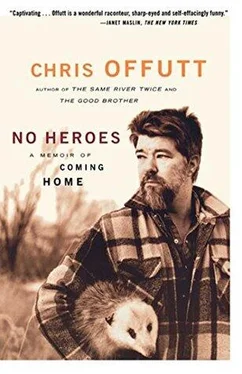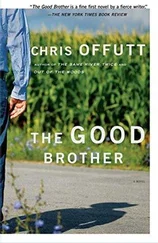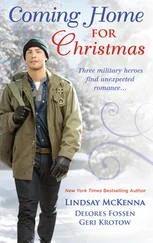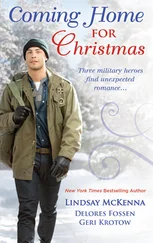The joy of nature is its constant reminder of how humans no longer belong. We can do nothing as perfect as a bird flying through the precise center of a small space between branches. Alone among the trees, I desire nothing. I try not to seek, which frees me to see what is revealed. Each day I empty the cistern of my mind and let the woods refill me. I want what is here to become who I am. I want to carry the secrets of the trees.
On the mornings I wrote in the woods, I entered the classroom wearing muddy boots and a plaid coat matted with burrs. Kentuckians were accustomed to the idea of walking in the woods as a necessary part of life. A few students told me they had followed my example and begun writing in the woods. One of these was Eugene, who often lingered after class.
“How you doing in your other classes,” I said.
“All right, I reckon. Sometimes I don’t think I’m cut out for school.”
“I know the feeling. What are you cut out for?”
“Well, that’s just it. I don’t rightly know. Sometimes I can’t stand to be at home, but I don’t know where else to go. That’s why I’m in school.”
“There’s the army and the Peace Corps. But the army makes you take orders and the Peace Corps wants a college degree.”
“Sometimes I think about going to Ohio.”
“You got people there?”
“Yeah, my mom’s cousins are laying thick. They can get me on at them factories.”
“Is that what you want?” I said.
“I don’t know.”
“A lot of people just want to stay right in these old hills and do what their daddy and their papaw did. Nothing wrong with that, either. I envy them. But you’re not that way, Eugene. You want more. Me, too. The first thing is to find out what you don’t want.”
“Sometimes I don’t want to think.”
“That’s a good way to get bad habits. What I do is write in my journal the things I don’t want to think, and that way they’re out of my head.”
“I thought diaries were for girls.” he said.
“Didn’t you ever watch Star Trek? Remember how Captain Kirk has that star log? Well, he ain’t a girl and neither am I.”
“Well, you’d damn sure make an ugly one. Why don’t you come home with me this weekend. See how we party up in Martin County.”
“I don’t know about that.”
“I read your books so I know you ain’t against getting a little wild. You didn’t get saved here lately, did you?”
“Not hardly. I just ain’t going to Martin County to get shot. If you boys have a party here, let me know.”
“You got yourself a deal.”
“How about giving me a story?”
“I got one right here, buddy.”
He dug in his pack for a manuscript.
“It ain’t much,” he said. “But it’s typed.”
“There’s only one thing scarier than writing a story.”
“What’s that?” he said.
“Showing it to somebody.”
“I ain’t scared.”
He walked away. I gathered my papers and headed for the rest room. The English building had a private rest room for male faculty. The very idea of separate facilities had always galled me as a student, and I used that rest room whenever necessary. In the name of equality, I steadfastly refused to enter the private rest room as a professor.
Town people considered themselves above those from the county. People in the hills felt fortunate for not living in town. I grew up on a ridge, and would never dream of living in a hollow, crammed with houses. By the same token, hollow people regarded themselves as better than the wild ridge-runners who lived deep in the hills, farthest from town, roads, and neighbors. Our social pecking order is a Möbius strip, with each group believing themselves superior. Out west I preferred the company of Indians and Chicanos, while in the east I felt comfortable among African-Americans and people from the Caribbean. We were all hillbillies of the soul.
I walked to my office with Eugene’s manuscript, seven single-spaced pages on blurry computer printout. It was a sad story with comic elements, about a young mans attempt to get hold of the drug called ecstasy. He was going to college in the mountains, his first time away from home. He hated school and thought of quitting. A series of misadventures ensued as the young man just missed a drug connection or encountered people who weren’t familiar with ecstasy. He turned down offers of Valium, Xanax, speed, Prozac, codeine, and Viagra. At every stop he smoked a doobie with other college kids and drank a beer. Finally, frustrated and tired, he purchased some OxyContin, a painkiller given to terminal cancer patients, and snorted it with his buddy. Within an hour his buddy died.
I leaned away from the desk. Substance abuse is a common subject of student stories, but I suspected Eugene’s work was based in truth. A number of people in the hills had recently died from recreational use of OxyContin. The protagonist’s dissatisfaction with college reminded me of my own anger while a student here. I called the place More-hole, where students were trapped rats with no choice but to eat the cheese. Ostensibly I was living at my parents’ house, but they never inquired as to my whereabouts. I owned a four-hundred-dollar car in which I often slept. On cold nights I stayed on the living room floor of a small house rented by two men and a woman. I made a mattress from couch cushions, which tended to slide apart during the night. Sometimes other people slept there, but I always got the cushions because I was a local guy with good drug connections.
If you were the first person awake in the morning you rolled a joint and lit it. You then put the burning end into your mouth, careful to hold your lips away from the fire. You walked through the house and blew smoke directly into each person’s face until his eyes opened. We called this “getting shotgunned awake” and considered it a terrific way to begin the day.
Often we cut class and drank beer at the Tunnel Cut, a beautiful spot of mixed hardwood and softwood forest, wildflowers, birds, and water. The area was accessible by a narrow set of ruts, humped in the middle like a long fresh grave. Low tailpipes scraped the ground. We liked to go out there and take acid. We smoked pot to cut the side effects and usually stayed all night, tripping our brains out beneath the stars. We weren’t beatniks or hippies, and we weren’t punkers or slackers. We were rednecks with dope.
There was a guy among us who preferred heroin to any other drug. He was older than us and had been in the army. His given name was Billy Buck Junior, and if pressed he’d show a crumpled birth certificate, which he carried as proof. Naturally we called him June Bug. He lived in a trailer, one of those tiny ones you hardly see anymore with a bedroom at one end, a living room at the other, and a tiny kitchen in the middle. Louvered windows ran along the sides. June Bug owned a well-stocked arsenal of weapons and ammunition. Eastern Kentucky is a gun culture but June Bug loved his weapons as kin. He carried pistols in lined boxes that reminded me of miniature coffins. He rarely spoke and when he did, his voice was surprisingly mild.
One afternoon June Bug joined us at the Tunnel Cut. He came alone and I watched as he refused the acid we had taken, and quite handily stuck a needle in his arm. I climbed the hill and entered the autumn woods. The sky was a bowl of blue that drenched the world. I could hear bugs crawling on leaves, the snakes and voles burrowing among roots, the bees preparing to sleep through winter. Birds headed south in continuous waves. I was lying amid a four-inch layer of crimson maple leaves with green veins that pulsed in mourning for the branch they’d left. The acid was so pure that I hadn’t moved for hours, although it could have been minutes or days.
Читать дальше












